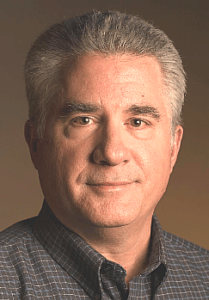On Sept. 11, 2001, I was flying into Cairo with my photographer partner to do a magazine coverage on that vast, ancient city.
Gazing at the Giza pyramids from the air on approach, we had no clue about the horror unfolding back in New York, Pennsylvania and Washington, where we had departed from the same airport (Washington Dulles) as hijacked American Airlines Flight 77, which would slam into the Pentagon about 12 hours later.
After landing in Cairo, we began to hear about what was happening. We called our families and editors to assure them we were OK. Then we sat in our hotel rooms, numbly watching TV coverage of the 9/11 attacks like everyone else. When would planes fly again? When would we get home? What terror might come next?

Erich Bridges
No one could answer these questions, so we decided to go ahead with the coverage.
The next morning, as we walked the streets of the city, Egyptians who recognized us as Americans approached us — some embracing us with tears in their eyes — to offer their sympathy and support, as if we had personally lost family members in the attack. “We are not like this,” they said over and over. “Real Muslims would not do this.”
In the heart of Islam
Later, as we sat with local friends in an outdoor cafe between the great Al-Hussein Mosque and the 1,000-year-old Al-Azhar Mosque and University, intellectual heart of Sunni Islam, another man approached us. He assumed we were Christians since we were Americans. Every morning when he woke up, he urgently told us, he saw a bright cross shining on the inside of his eyelids before opening his eyes. What did this mean? He felt compelled to seek the truth, regardless of the consequences.
Christians living and working in the Islamic world are quite familiar with such stories: Muslims, even imans, having visions of Christ or dreams of a man in white garments standing beside their bed, telling them to seek out believers or Bibles to learn more about him. I’ve personally interviewed many such seekers who now follow Christ.
Those first days and weeks after 9/11 have stayed with me. For all the initial fears and unknowns, followed by 20 bloody years of attack and counterattack, I have sensed an underlying reality during numerous subsequent trips to the wider Muslim world. Jihadi terrorists grabbed the headlines and drove international response, military or otherwise. But average Muslims wanted peace and better lives — physically and in many cases, spiritually.
“Jihadi terrorists grabbed the headlines and drove international response, military or otherwise. But average Muslims wanted peace and better lives — physically and in many cases, spiritually.”
Not that the Christian church doesn’t face ongoing hostility and persecution in Muslim-majority nations. It does, and attacks likely will increase in some places. But persecution is the rule in church history, not the exception. Persecution is inevitable, especially wherever the gospel spreads.
The more important question is: How do followers of Christ, locally and in the wider global church, respond? With love and courage, or with fear and hatred?
These are difficult questions for American Christians, who were the targets of the 9/11 attacks along with their fellow citizens. We are citizens both of an earthly nation and a heavenly kingdom. Which comes first? Many signed up (or were called up) for military service on Sept. 12 and the following days. Thousands of them served, suffered injuries or died in Afghanistan and Iraq. They deserve our respect and thanks, regardless of how we feel now about those wars.
Different paths
But others chose a different path.
The very day of the 9/11 attacks, one Southern Baptist called the International Mission Board to report that God had used the event to compel him once and for all to give his life to missions. Many followed close behind him.
Ten years after 9/11, a young friend and colleague of mine was preparing to live and minister in the Middle East (he’s still there, and now he’s fluent in Arabic).
“If it weren’t for 9/11, I might not be where I am today. I might not have seven guys named Mohammed listed in my phone.”
“God has called me to dedicate my life to working with and around Muslims, sharing life and truth with them,” he said at the time. “If it weren’t for 9/11, I might not be where I am today. I might not have seven guys named Mohammed listed in my phone. I might not have traveled to nine Muslim countries before the age of 30. God used this tragic event to call me out of the darkness of apathy and ignorance toward Muslims into the light of service and presence among this vast people.”
Some Christians responded differently, however — cancelling mission trips and partnerships, reconsidering overseas service (especially in Muslim nations), rethinking the whole idea of global involvement as America hunkered down.
A former missionary recalled the night she and her husband spoke at a U.S. church about their ministry to Muslims. “This informal time rapidly turned into angry voices demanding of us, ‘How can you love them? How can you trust them? How dare you?’” she said. “It was very sad to me.”
When three Southern Baptist medical workers were murdered by an Islamist in Yemen in 2002, and four SBC relief workers were gunned down by terrorists in Iraq in 2004, angry voices demanded, “Bring all the missionaries home!”
Those voices have died down in the years since. Christian ministry continues among Muslims and unreached peoples in potentially dangerous places — albeit with new caution and stringent security training.
‘Come home, America’?
But the psychological trauma inflicted upon Americans by 9/11 and its long aftermath continues. It plays a major role in anti-Muslim hatred, anti-immigrant fears, nativism and the latest incarnation of “America First” (Trump) or “Come Home, America” (Obama, Biden) isolationism in the United States.
“The psychological trauma inflicted upon Americans by 9/11 and its long aftermath continues.”
I believe this explains, at least in part, the majority public support for our recent pullout from Afghanistan, if not the chaotic and callous way it was conducted. The negative “forever war” moniker applied to Afghanistan doesn’t seem to apply in the public mind to our longstanding military commitments to other, far-stronger allies.
The 20-year Afghanistan debacle, and the Taliban’s triumphant return, “will reinforce the sense that the world is a bad place, that American involvement leads to a costly outcome,” said Richard Haas, president of the Council on Foreign Relations, in an interview with the Wall Street Journal. It comes after the United States more or less washed its hands of major involvement in Iraq and Syria, essentially leaving regional influence to Russia, Iran and others.
And it comes on the 20th anniversary of 9/11, which Joe Biden intended as a public relations coup. Instead, it has turned into a disaster, both in how others view us and how we view ourselves.
These are national, geopolitical and cultural debates — Caesar’s kingdom, as it were. They should be distinct from the life and mission of the church, particularly when it comes to discussions of using military force. But as American Christians, we can’t escape their influence.
“The worst impulse for believers is to turn away from the world in fear, hatred or worst of all, apathy.”
If “America is coming home,” should we “bring the missionaries home”? Many churches are apathetic about international missions in any case, and some progressive Christians believe evangelical mission work continues the colonialist, imperialist habits of the 19th century.
“It’s interesting that we have summed up this whole event in the expression ‘9/11,’” said former IMB missionary Randy Rains at the 10-year mark. “It has become a part of our vocabulary and worldview, a milestone around which we look at life — pre-9/11 and post-9/11. (It) was the event that brought us officially into the ‘age of terrorism’ in American culture. It has brought out both the best and the worst in us, which is usually the case with these cataclysmic events in history.”
The worst impulse for believers is to turn away from the world in fear, hatred or worst of all, apathy. The best is to follow Christ into the world that he loved enough to die for — whether that means going to the ends of the earth or befriending an Afghan refugee arriving in your community in the days ahead.
It’s your choice.
Erich Bridges, a Baptist journalist for more than 40 years, retired in 2016 as global correspondent for the Southern Baptist Convention’s International Mission Board. He lives in Richmond, Va.
Related articles:
Leaving Afghanistan was the right thing done the wrong way, Americans say in two polls
On the anniversary of 9/11: Reclaiming ‘unanticipated courage’ | Opinion by Bill Leonard


